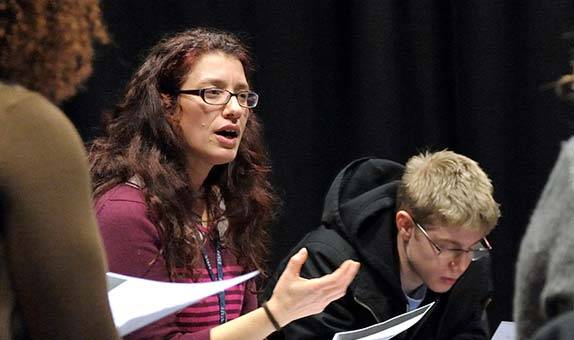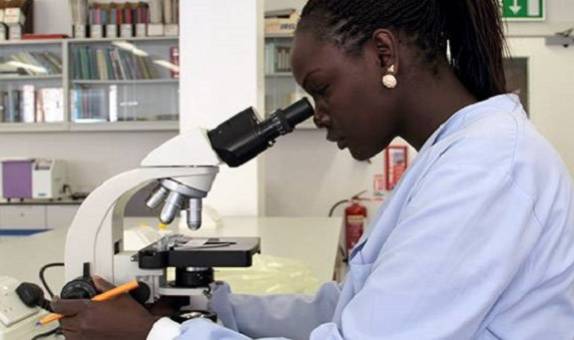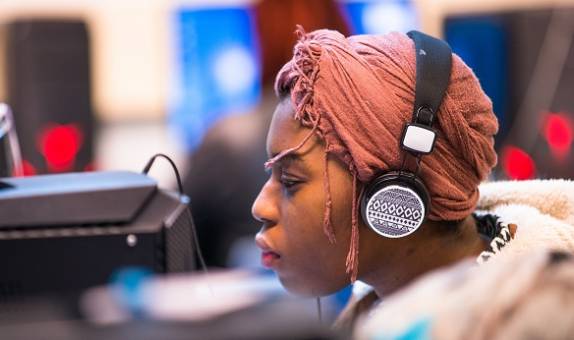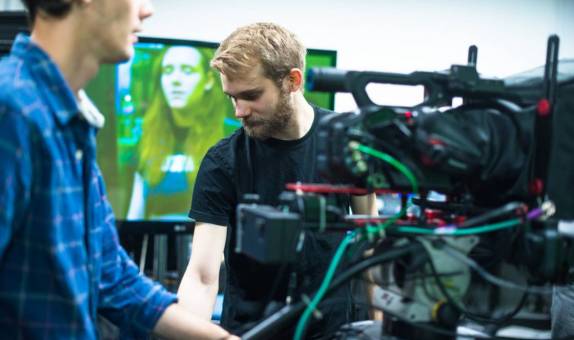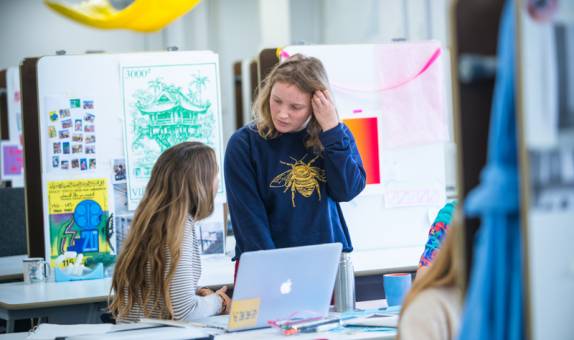Improving equality in UK Higher Education through an inclusive curriculum framework and value-added metric
Kingston research has resulted in advances in BAME student attainment and in inclusive teaching and learning
It has also influenced national policies, led to better staff and student awareness of awarding gaps and changed attitudes towards inclusive practices.
Over nine years, Dr Annie Hughes (Head of Kingston University's Learning and Teaching Enhancement Centre), Prof Fiona Ross CBE and Ms Nona McDuff OBE, collaborated to accurately assess and address the attainment gap between BAME and white UK resident students. The attainment gap is the difference in top degrees (a first or 2:1 classification) awarded to different student groups.
In 2012, Dr Hughes began a study based on critical race theory, which explored the differences in the experiences of white and BAME geography and earth sciences students on fieldwork trips. Her study revealed that even seemingly neutral questions about accommodation reflect cultural biases and white hegemony. The research also reflected the immediate need for inclusive educational practices and a requirement to understand diverse cultural needs. Simultaneously, Ms McDuff was in the process of developing a curriculum framework that would embed equality, diversity and inclusion across Kingston University.
Dr Hughes and Ms McDuff used their insights and materials to create a new framework: the Inclusive Curriculum Framework (ICF).
This framework defines three core principles: an accessible curriculum, student representation in the curriculum, and enabling of positive student contribution to a global and diverse environment. It is an evidence-based, practical toolkit that serves as a base for academic planning.
Key to understanding the effect of inclusivity measures is the Value-Added (VA) metric developed by colleagues in Kingston's planning directorate. The VA metric proves that differentials in attainment are not due to student characteristics but rather a reflection of the need to change institutional practices.
The ICF and VA have made a notable impact in the push for equality in higher education in the UK, significantly improving student results and attainment. At Kingston, where the ICF and VA have been in use for six years, the degree-awarding gap between white and BAME students achieving a first or 2:1 has reduced 18 percentage points.
These improvements have also created awareness among national policymakers about the institutional factors responsible for attainment and the need for equality and inclusivity in higher education.
In an interview for The Guardian in 2017, Les Ebdon, former Director of the Office for Fair Access, pointed to Kingston's efforts as exemplary and stated: "Kingston University has made closing the BAME attainment gap a matter of institutional strategy and measures the vice-chancellor's performance on that basis".
Another landmark impact has been improving teaching and learning methods that centre on student engagement and co-creation of curricula. There is also increased staff and student awareness of awarding gaps as well as a marked change in attitudes towards inclusive practices.
A leading textbook, A Handbook for Teaching and Learning in Higher Education, fifth edition (2019), includes research outputs from the ICF and is a valuable tool for an international audience of academic practitioners.
The ICF and VA tools and resources are also freely available via Kingston University's ICF web pages and promoted via YouTube. In 2017, Kingston University won The Guardian Award for teaching excellence because of its evidence-based approach to inclusive teaching and learning. Dr Panagiota Paliokosta and Theresa Nash, as part of Kingston University's Special Interest Group on Inclusion and Social Justice, organise conferences and webinars where staff and students are encouraged and supported to discuss sensitive equality issues.
The Inclusive Curriculum Framework and Value-Added metric have created a flexible, adaptable solution towards addressing inequalities in higher education in the UK.
Contact us
- For non-student research enquiries, email the Research Office
- For research impact and REF enquiries, email the REF and Impact Team.
- Research contacts
- How to get to Kingston University



